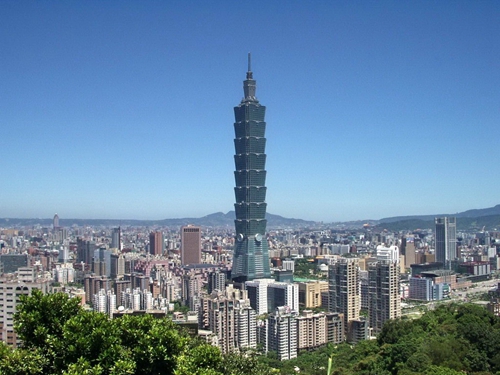By Han Jinwei, director of Tuanjiewang.cn and deputy director of the News Department with Tuanjiebao
On May 20, Tsai Ing-wen, the new leader of Taiwan authorities, had delivered her inaugural speech. She utilized her Tai Chi skills to avoid discussing the future direction of cross-strait relations.

She spoke with indistinct words instead of a clear voice, and used rhetoric to indirectly support Taiwan independence. In Beijing, the Taiwan Work Office of the Communist Party of China Central Committee and the Taiwan Affairs Office of the State Council had delivered their response.
In mainland's opinion, Tsai appeared ambiguous about the "1992 consensus" and its core meaning, which would ensure peaceful and stable development of cross-strait relations.
In Tsai's speech, the content on cross-strait relations was placed after peaceful and stable regional development, which reflects that cross-strait relations are secondary in her priorities. She is alienating the mainland, and demonstrating how Taipei seeks a stronger collective security alliance with Washington and Tokyo.
According to the Taiwan media, the ruling Democratic Progressive Party (DPP) has already called for repealing recent edits on school textbooks, withdrawing a lawsuit against the Sunflower Student Movement, and cancelling toll relief on expressways, which show the DPP's impetuosity on matters of ideology and people's livelihoods.
Ke Zhi'en, an opposition KMT Party legislator for Taipei's authorities, had criticized Pan Wenzhong's decision to abolish textbooks edits, since politics is tampering with education. In regards to the lawsuit against Sunflower Student Movement, Wang Hongwei, chair of KMT's Culture and Communications Committee, has argued that the Executive Yuan of Taiwan authorities may encourage others to damage public properties for achieving political objectives.
The DPP is eager to shape a new image to the public and the world. On May 25, Tsai attended the DPP's Executive Council meeting. She said her party would make a different Taiwan, and she does not appear to recognize the "1992 consensus."
As for Tsai's small tricks, the mainland has seen them clearly. At a press conference held by the Taiwan Affairs Office of the State Council on May 25, the spokesman had reiterated that Taiwan independence cannot lead to peace and stability in the region.
Beijing opposes any Taiwan independence separatist activities or the so-called law amendment carried out by any forces. There is no need to test Beijing's resolve to defend its national sovereignty and territorial integrity, while they would not take the slightest concessions from Taipei.
Hear her words and watch her deeds, which is the mainland's clear attitude towards Tsai. Taipei's authorities should face up to its history and reality under her leadership, the door to cross-strait dialogue would be always open for her.
Yet, if Tsai mistakes the kindness of Beijing as cowardice; sincerity as compromise, then she is miscalculating. It is not the first time for the DPP to rule Taiwan. Lee Teng-hui and Chen Shui-bian have engaged in similar tactics to act divisive against Beijing.
The "1992 consensus" offers peaceful development of cross-strait relations, only by adhering to the one-China principle, which can usher in Taiwan's economic prosperity and its international space.

Han Jinwei, director of Tuanjiewang.cn and deputy director of the News Department with Tuanjiebao
( The opinions expressed here do not necessarily reflect the opinions of Panview or CCTV.com. )

Panview offers an alternative angle on China and the rest of the world through the analyses and opinions of experts. We also welcome outside submissions, so feel free to send in your own editorials to "globalopinion@vip.cntv.cn" for consideration.















